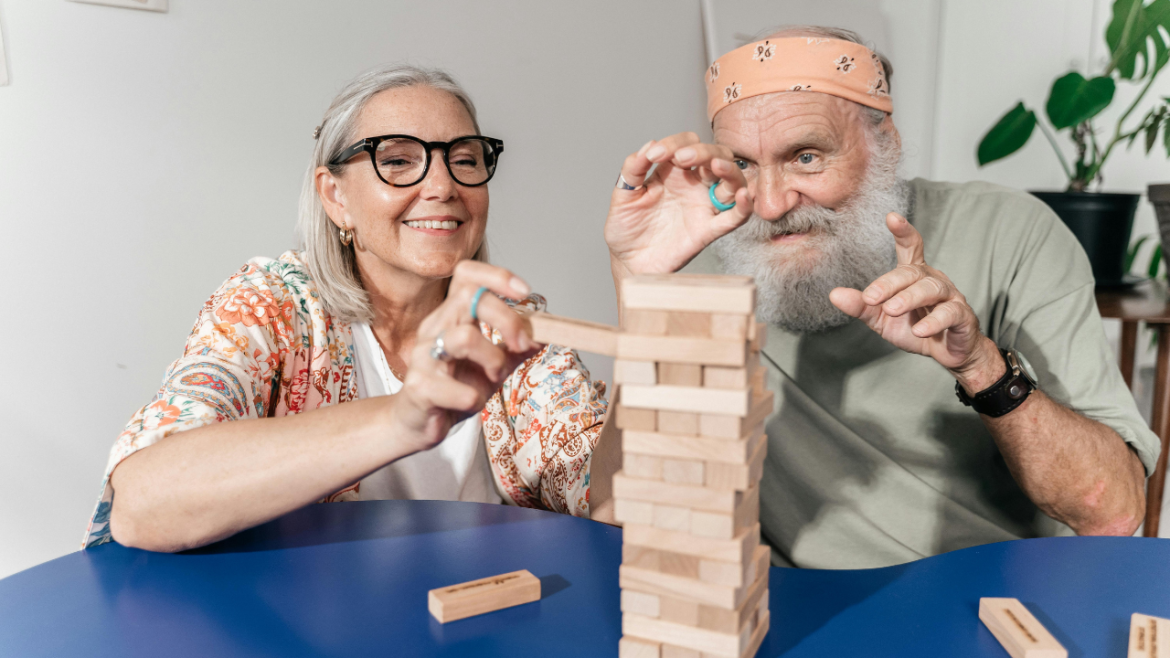How Can Seniors Keep Their Brain Active?
Aging brings many changes, both physical and mental, but one of the most significant concerns for seniors is cognitive decline. As years pass, memory may not be as sharp, problem-solving may slow, and learning new skills might take more time. But that doesn’t mean it’s the end. In fact, there’s hope—powerful, science-backed ways to keep the brain active, strong, and thriving well into the golden years.
Mental stimulation is more than just a pastime. It’s a lifeline. For many seniors, staying mentally sharp brings a sense of purpose, confidence, and connection. And for loved ones watching from the sidelines, it brings comfort to know there’s still joy in learning, even as the years accumulate.
Why Brain Health Matters In Later Life
Brain health affects every aspect of daily life—from remembering a grandchild’s birthday to managing medication schedules. When cognitive abilities decline, independence becomes more difficult to maintain. However, studies show that an active brain is a resilient brain. Mental activity can slow the progression of diseases like dementia and Alzheimer’s. It can improve mood, reduce anxiety, and increase overall well-being.
Even more important, the brain thrives on challenge. The human mind is incredibly adaptive. No matter the age, the ability to learn, grow, and adapt is still there—waiting to be nourished.
Daily Routines That Keep The Mind Engaged
One of the simplest ways to keep the brain active is through consistent routines that offer mental engagement. Reading each morning with a cup of tea, for instance, is more than a peaceful habit—it’s cognitive exercise. Whether it’s a newspaper, a mystery novel, or a biography, reading challenges comprehension, imagination, and memory.
Puzzles also offer gentle but effective brain workouts. Crosswords, Sudoku, and word games test logic and pattern recognition. They also create a rewarding sense of achievement. These are not just games—they’re tools for keeping neurons firing and minds sharp.
But it’s not only about what’s done alone. Conversations stimulate the brain too. Social interaction exercises the parts of the brain that control language, listening, memory, and empathy. Talking with friends, sharing stories, or joining a book club can be powerful mental exercise.
Learning Something New Can Rekindle Joy
It’s never too late to learn. In fact, picking up a new hobby or skill is one of the most powerful ways to activate the brain. Seniors who try something unfamiliar—like painting, gardening, or even using technology—unlock new pathways in the brain.
Learning a musical instrument, experimenting with photography, or taking up gentle yoga are not only enjoyable—they create new neural connections. And when progress is made, even small steps, it gives a renewed sense of purpose. That emotional upliftment alone boosts brain function.
These experiences don’t just benefit the mind; they spark joy. They create moments of surprise and delight. And in that happiness, the brain finds strength.
Physical Movement Supports Mental Agility
What happens in the body affects the brain. Regular physical movement, even in small amounts, has been proven to enhance cognitive function. Walking, stretching, or participating in senior fitness classes increases blood flow to the brain. More oxygen means better performance, better memory, and a stronger mood.
Even simple chair exercises can make a difference. Combined with deep breathing or mindfulness, they don’t just support the body—they clear mental fog, reduce stress, and create a sense of calm.
As routines form, they become anchors—daily touchpoints that bring stability and peace to both the mind and heart.
Nutrition’s Role In Mental Vitality
Food fuels more than just energy—it also feeds the brain. Seniors who eat a balanced diet rich in antioxidants, healthy fats, and omega-3s are often more mentally alert. Blueberries, walnuts, leafy greens, and salmon all support brain function. Hydration matters too. Dehydration can lead to confusion and fatigue.
Mealtimes can also be an opportunity for conversation and connection. Sharing a healthy meal with family, talking about the day, or reminiscing about the past brings comfort, familiarity, and mental stimulation in a very natural way.
The Emotional Power Of Staying Engaged
Keeping the brain active isn’t just about avoiding cognitive decline. It’s about quality of life. Seniors who remain mentally engaged often feel more fulfilled. They laugh more, smile more, and connect more deeply with the world around them.
Every crossword completed, every new recipe tried, every conversation shared becomes a celebration of the present moment. It becomes a declaration that the mind—and the soul behind it—is still vibrant.
Cognitive engagement is an act of love. It’s a gift to oneself and to everyone who loves them.

